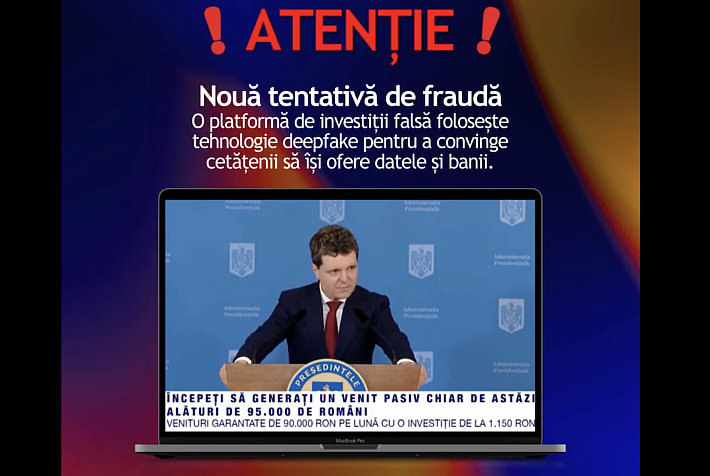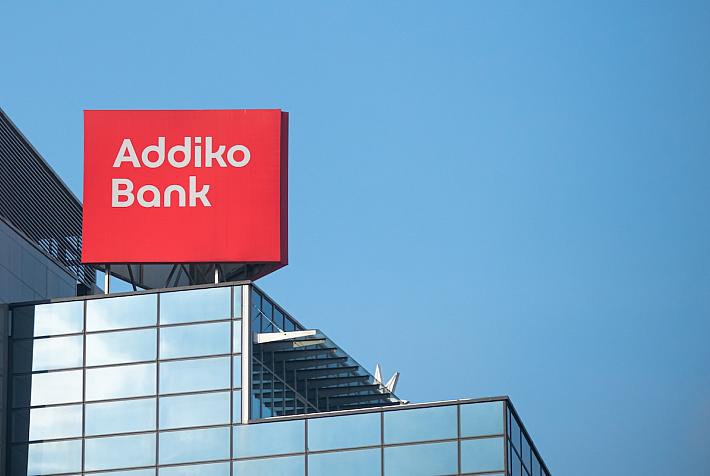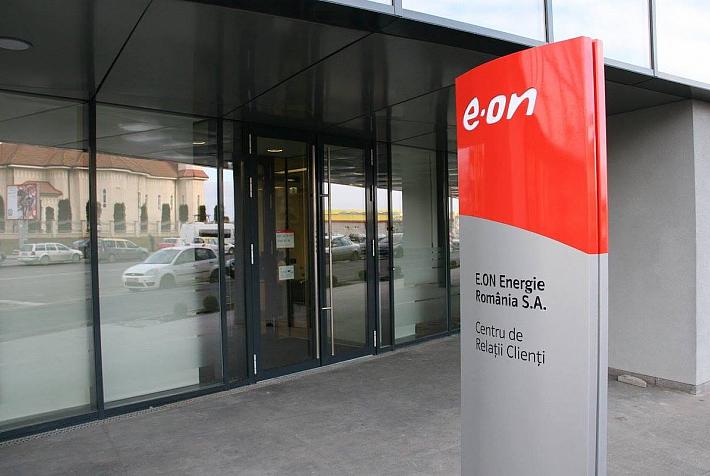(P) Tax Flash: Fiscal Code and gambling activities law application norms in Romania

Norms for the application of the Fiscal Code
(Government Decision no. 150 / 2011, published in the Official Gazette no. 150 / 1 March 2011)
The Government Decision (GD) contains amendments regarding profits tax, personal income tax, mandatory social contributions, tax on income of microenterprises, withholding tax, VAT and excise duties.
Also, the GD amends the norms for the application of Government Emergency Ordinance (GEO) no. 77 / 2009 regarding the organisation and exploitation of gambling activities.
The provisions of the GD enter into force from the date when published in the Official Gazette. The main amendments brought to the norms for the application of the Fiscal Code include:
Profits tax
Fiscal credit
An exemption of Romanian profits tax is provided as being applicable in case of Romanian resident legal entities which realise profits from another state through a permanent establishment based on the provisions regarding the “exemption method” of the double tax treaty concluded by Romania with that other member state and based on a document attesting payment of tax abroad.
Profits tax for the year 2010
The GD brings clarifications in respect of the computation, declaration and regularisation of the profits tax for the year 2010, namely, submission of two annual profits tax returns for 2010 (one for the period 1 January 2010 – 30 September 2010 and one for the period 1 October 2010 – 31 December 2010) only by taxpayers that, further to the comparison between the computed profits tax with the minimum tax, for the period 1 January 2010 – 30 September 2010 determined that the minimum tax is higher than the profits tax. Conversely, a single profits tax return shall be submitted for the entire year.
The GD clarifies the computation method of the taxable profit for the two fiscal periods of 2010, e.g. computation of expenses with limited deductibility, deduction of provisions and legal reserves, computation of the debt to equity ratio, establishing the fiscal credit.
As regards the carrying forward of tax losses, the following clarifications are brought:
The tax loss related to the period 1 January 2010 – 30 September 2010 shall be recovered from the taxable profits realized in the following 7 consecutive years, the first year for carrying forward of the tax loss being the period 1 October 2010 – 31 December 2010;
The tax loss related to the period 1 October 2010 – 31 December 2010 shall be recovered from the taxable profits realized in the following 7 consecutive years, or 5 consecutive years in case of tax losses incurred through a PE in a foreign state;
The tax loss recorded before 2010 shall be recovered considering the year 2010 as a single fiscal year, in the sense of the 5 or 7 consecutive years.
Dividend tax
The GD provides that in case at the moment of the payment of the dividend for which the tax was withheld and paid, the beneficiary, Romanian legal entity, fulfils the minimum holding conditions for the exemption of dividend tax, the Romanian legal entity paying the dividend may request a refund.
Tax on income of microenterprises
The GD brings clarifications in respect of various aspects, including:
Qualification of revenues in the category of revenues from consultancy and management;
The condition regarding the number of employees;
Fulfillment of the condition regarding the level of revenues realized in the previous year (i.e. EUR 100,000) and the exchange rate used for determining the EUR equivalent of such income;
The option to apply the tax on income of microenterprises by newly set-up legal entities and by those for which the period of temporary inactivity ceases during the year;
Legal entities which cannot opt for this tax regime;
The moment when the taxable period of a microenterprise begins and the moment when it ends;
Types of revenue which constitute the taxable base of a microenterprise;
Revenues which should be included or not, as the case may be, in the taxable base of microenterprises which cease their activity further to a restructuring or liquidation procedure and which during their existence paid also profits tax.
Withholding tax
The GD brings clarifications in respect of the classification of certain types of revenues (e.g. granting the right to use radio / TV satellites, telecommunication networks, broadcasting movies) as royalties or other type of income.
The GD also defines the notion of “payment” of revenues to non-residents. Clarifications are brought in respect of the declarative obligations in case of transfer of certain securities.
The provisions of the Agreement concluded by the European Community and the Swiss Confederation providing for measures equivalent to those laid down in Directive 2003/48/EC on taxation of savings incomes in the form of interest payments are applicable as of Romania’s accession to EU.
Clarifications are brought in respect of the provisions regarding the applicability of the most favourable tax rate when, for the same income, different tax rates are provided by the domestic legislation, the Community legislation or the double tax treaties, regarding the necessity of proving the residency of the beneficiary in a state with which Romania concluded a double tax treaty and its quality of beneficiary of the EU legislation.
Income tax
The main clarifications brought by the GD on income tax are as follows:
The 150 RON ceiling set for the gifts offered by the employers to the under age children of their employees and / or to their female employees with special occasions (ex. Easter, June 1st, Christmas, March 8th) is applied for each child per employee / per each female employee.
Resident individuals have the obligation to declare their income obtained from abroad even if the double tax treaty provides the exemption method in Romania for the amounts that may be taxed in the other state.
VAT
Financial leasing regarding tangible movable goods
In case of cancellation of financial leasing contracts for tangible movable goods, the goods are deemed as missing inventories for the lessor / lender (deemed supply of goods) when the deadline stipulated in the contract for the return of the good expires, but no later than 30 calendar days from the date when the contract was terminated.
Therefore, the lessor / lender will have to collect VAT for the deemed supply of goods, while the taxable amount will be the value of the capital which was not yet invoiced. Upon the repossession of goods, the deemed supply of goods will be cancelled.
Transfer of a going concern
In case of non-taxable transfer of a going concern (universal transfer of assets and / or services), the transferee of the assets has the liability to provide the transferor with an own liability statement based on which he shows the intention to perform the economic activity or part of the economic activity that was transferred to him and not to liquidate immediately the respective activity and respectively, not to sell possible inventories.
The application by the taxable persons of the taxation regime for the transfer of a going concern shall not be penalised by the tax inspection authorities (by cancelling the beneficiary’s right to deduct the VAT) provided that the respective transactions are taxable by effect of the law or by option, except for the situation in which it is found that the transaction was taxed for fiscal reasons.
Threshold for protocol and sponsorship expenses
In case of taxable persons not required to submit yearly financial statements, the thresholds up to which the goods granted for free for protocol and sponsorship activities are not considered to be a supply of goods, are determined based on the information reported in the statements regarding the realised income.
Services regarding the transport of goods / passengers performed outside the Community
The invoices or specific documents for the international transport of goods as well as for the international transport of passengers are to be issued for the entire route, without being necessary to perform the split between the value of the national route and of the international one.
Any VAT exemption for transportation services is granted for the route performed inside the country.
The person that performs international transport of goods for non-taxable persons and / or international transport of passengers, benefit from VAT deduction related to the acquisitions of goods and / or services also for the part of the transportation that is performed outside the country which does not have the place of supply in Romania.
The adjustment of the VAT taxable base
In case of adjustment of the taxable base, the exchange rate should be the same with the one used in case of the underlying transaction, and in case the underlying transaction cannot be determined, the exchange rate to be used should be the one valid at the date of the event which led to the adjustment.
The re-import of goods
The goods re-imported in Romania by persons that exported the goods outside EU, which are preserved in the same condition as they were when the export was initially performed, benefit from a VAT exemption to the extent that the respective goods are exempted from customs duties based on the customs legislation which refers to the goods reintroduced into the EU territory.
Justification of VAT deduction for import
In case the Romanian System for automatic processing of the customs import statement is used, the justification for the VAT deduction is to be done based on the hard copy of the customs declaration for which the customs clearance was granted, authenticated through the signature and stamp of the customs officials.
VAT refund
The taxable persons not established and not registered in Romania, but established in another Member State or not established in the Community, may benefit of reimbursement of VAT paid for imports and acquisitions of goods / service performed in Romania even if they have rendered international transportation services of passengers in Romania (provided that the other conditions are cumulatively met).
Issuing of invoices by the buyer / the client on behalf of the supplier / the provider
For invoices issued by the buyer / client on behalf of the supplier / provider there is no requirment for the buyer / the client to be registered for VAT purposes in Romania. Thus, in case only one party is registered for VAT purposes in Romania, only that party has the obligation to notify the relevant fiscal authority.
Other clarifications
The GD brings certain clarifications as regards:
Granting access to cultural, artistic, sportive, scientific, educational, entertainment or other similar events;
VAT deduction through the VAT return by taxable persons not established in Romania, but registered for VAT purposes, including for the acquisitions performed before the registration for VAT purposes (if for such acquisitions they did not request already a VAT refund);
Inactive taxpayers or temporary inactive taxpayers (e.g. VAT deduction and invoices issued for the acquisitions performed by a taxable person from such a taxpayer, VAT adjustments for tangible fixed assets, applying for VAT registration at the moment when the situation which led to the removal from the records ceased);
Persons that request the removal from the records of persons registered for VAT purposes as a result of not exceeding the threshold for exemption for small enterprises (e.g. tax adjustments) and the implications arising in cases where the request is made erroneously (e.g. VAT collection, VAT adjustment, deduction right);
Intra-community acquisitions of means of transport performed by persons not registered and who are not required to register for VAT purposes under the art. 153 from the Fiscal Code;
Correction of self-invoices issued in respect of self supplies of goods / services, transfer to other Member State or in other situations provided by the Fiscal Code.
Excise duty
The requirement for the authorised warehousekeepers, registered consignees and authorised importers to present, on a monthly basis, until the 15th day of the month following the reporting month, the report on deliveries of cigarettes has been eliminated.
The obligation of the authorised warehousekeepers, registered consignees and authorised importers of products from the category of processed tobacco to submit a monthly statement of products released for consumption in the reporting month, according to a template provided by the Norms, has been introduced.
Certain aspects related to the content of the commercial documents which accompany, in certain cases, the transport of energy products, additives or biomass products have been clarified.
The exemption from the payment of excise duty for processed tobacco, representing cigarettes, used for the purpose of scientific tests or market tests has been repealed.
The reduced excise duty for energy products which contain a minimum of 4% in volume of biomass products has been repealed.
Social contributions
The main clarifications brought by the GD to the norms to Title IX² are as follows:
The norms define certain terms in the sense of social contributions:
“Resident individuals" are individuals who have their domicile or residence in Romania, as well as foreigners or stateless persons who hold legal right to stay and work in Romania and have the obligation to pay social contributions required under the specific legislation on social security systems.
“Non-resident individuals” are non-resident individuals who derive income in Romania from conducting certain activities on the basis of an employment contract, a work relationship or a special status provided by the law and who according to international agreements to which Romania is part of, are required to pay the social contributions provided by the Fiscal code.
Non-resident employers are the individuals / companies that do not have registered their domicile or residence in Romania and which, according to international agreements to which Romania is part of, have the obligation to pay Romanian social contributions for their employees who are subject to Romanian Social security legislation.
Income earned for the activities performed to create computer software, as well as the income earned by individuals with severe or highly handicap, which are exempt from income tax, are subject to social security contributions.
In case of several employment contracts concluded with the same employer, the ceiling of the social security contributions base applies on the cumulated income from such contracts.
In case of several employment contracts concluded with different employers, the ceiling of the social security contributions base applies on the salary income earned based on each employment contract.
The general and specific exceptions to the calculation base of the individual’s social security contributions also apply to the calculation base of social security contributions due from the employer.
Main amendments of the Norms for the application of Government Emergency Ordinance no. 77 / 2009 regarding the organisation and exploitation of gambling activities
Organisers of gambling activities have the liability to declare with the competent tax authority the taxes related to the organising licence, the authorisation of gambling and the access tax, up to the moment of their payment.
Conditions in respect of issuance and keeping of the above mentioned tickets are imposed. Non-observance of these conditions is sanctioned with a fine of RON 2,000 – 5,000. Moreover, in certain cases, the gambling authorisation may be suspended.
By Venkatesh Srinivasan, Partner – Head of Tax and Legal, Ernst & Young Romania
(P) – this article is an advertorial











